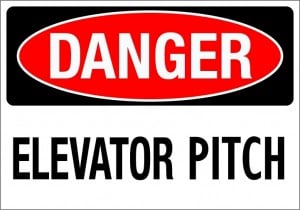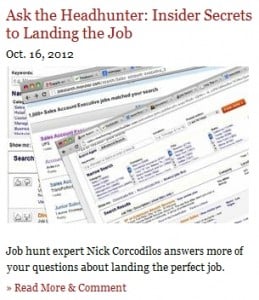In the December 11, 2012 Ask The Headhunter Newsletter, a job hunter wants to know how to get past the college degree requirement when he’s sure he can do the job anyway.
I just discovered your blog and have purchased How Can I Change Careers? and Keep Your Salary Under Wraps. I have some questions regarding the job hunting process that keeps biting back at me.
How do you get past the stigma of not having a college degree? I am reading my way through your website and have taken in some of the information, such as networking to meet the people in charge of making the decision. However, I want to know how can I compete for jobs that require degrees when I am fully capable of meeting the job requirements as listed?
Many employers set this as a requirement and don’t even want to talk to you unless you have a degree, regardless of whether you can do the job. I appreciate your help.
Nick’s Reply
 Success requires turning the job hunting process on its head. The way it normally works, you provide your credentials and they decide whether to talk to you. If your keywords (that is, college degrees) don’t match, they tell you to go pound salt.
Success requires turning the job hunting process on its head. The way it normally works, you provide your credentials and they decide whether to talk to you. If your keywords (that is, college degrees) don’t match, they tell you to go pound salt.
But there is another way to approach this that can get you past the college requirement. Learn to talk shop before “credentials” dominate the transaction. ATH reader Thomas Lafferty explains it in the comments section of this blog posting: You can’t get a job because employers hire the wrong way. Tom basically wrote this column for me.
Take a look at his approach and, more important, his attitude. First, he dismisses his resume and avoids triggering the college credentials problem:
I’d also like to ring in on the discussion about the effectiveness of demonstrating your abilities in an interview: It works. If I had relied on my resume for the last 3 jobs I had, I would not have gotten them. I had neither the experience nor the education, so my resume definitely hid my ability.
Lafferty says he’s got no degree, but that didn’t stop him:
This [demonstrating his ability to win the job] worked so well that in the first job I’m talking about I was the only person on staff without a degree or experience.
Employers require degrees because the degree is considered a proxy for skills, knowledge, or ability. Managers don’t have time to vet every candidate thoroughly, so they depend on this institutional stand-in for a value judgment. It borders on irresponsible, but they do it. Some of the time, it works. But, understanding why they rely on degrees in the selection process should help you address what they really want: Proof you can do the work and proof that you have the sophistication to grow in the job.
Sometimes, as Lafferty points out, you have to take a lower level job so you have the opportunity to demonstrate what you can do over time:
The second job was created for me after I had already been hired at a lower level.
Most people would balk at a lesser job. Not Thomas. He capitalized on it and got more than most job hunters do in the end: a custom job. Not bad, eh?
In another case, he earned the job on the fly by doing the job in the interview:
The third company I’m talking about hired me without going through the traditional four-tier interview, and again I did not have the background or the education. In any case, what I did have was the skill to do the job and to prove it in an interview as well as a good dose of passion.
Resumes and degrees are not always valid indicators of ability to do a job. So, help employers by giving them other ways to judge you. No one says this is easy — sometimes you have to be clever. I know one guy who followed a manager to a professional conference, chatted him up, talked shop, and got an interview and an offer. This shared personal experience tops any formal credentials — but it’s a lot of work. It should be. Managers are sometimes foolish to hire based on a piece of paper, or on a sheepskin — because candidates who deliver credentials can’t always do the job.
Since you have a copy of How Can I Change Careers?, check the sidebar on page 9, “Create your next job.” Pretend you’re creating that job from scratch. Prepare a brief plan for how you will contribute to the business through your work — and through that job. Be as specific as possible. Once you’ve got your notes together, try to write a resume with a “Free Sample” in it — page 23.
Finally, and most important, check page 27. You must enter the “Circle of Friends” that the manager is part of. I know this seems daunting if you’re a bit shy or lack confidence, but it’s critical. (If you need more help, try a few Toastmasters meetings — learn to be more comfortable breaking the ice with others.) Make one phone call to an insider — and ask just one question. Get the info you need, politely say thanks and end it. Don’t push yourself. Try two and three questions on the next calls. It gets easier. The contacts you make turn into advice and referrals and gaIn you the credibility you need with the manager. And that renders the college degree (and other indirect judgments about you) less important.
You can compete for jobs that cite criteria you don’t meet, if you take an alternate approach that addresses what the employer really needs: proof that you can do the job.
(Special thanks to Thomas Lafferty for his candid and inspiring comments on the blog that served as the guts of this Q&A column!)
If you’re without a college degree, have you nonetheless won jobs that required a degree? How? Have you overcome other “requirements” to win a job? Tell us your story — give us some inspiration and alternate ways to prove you can “do the job.”
: :













